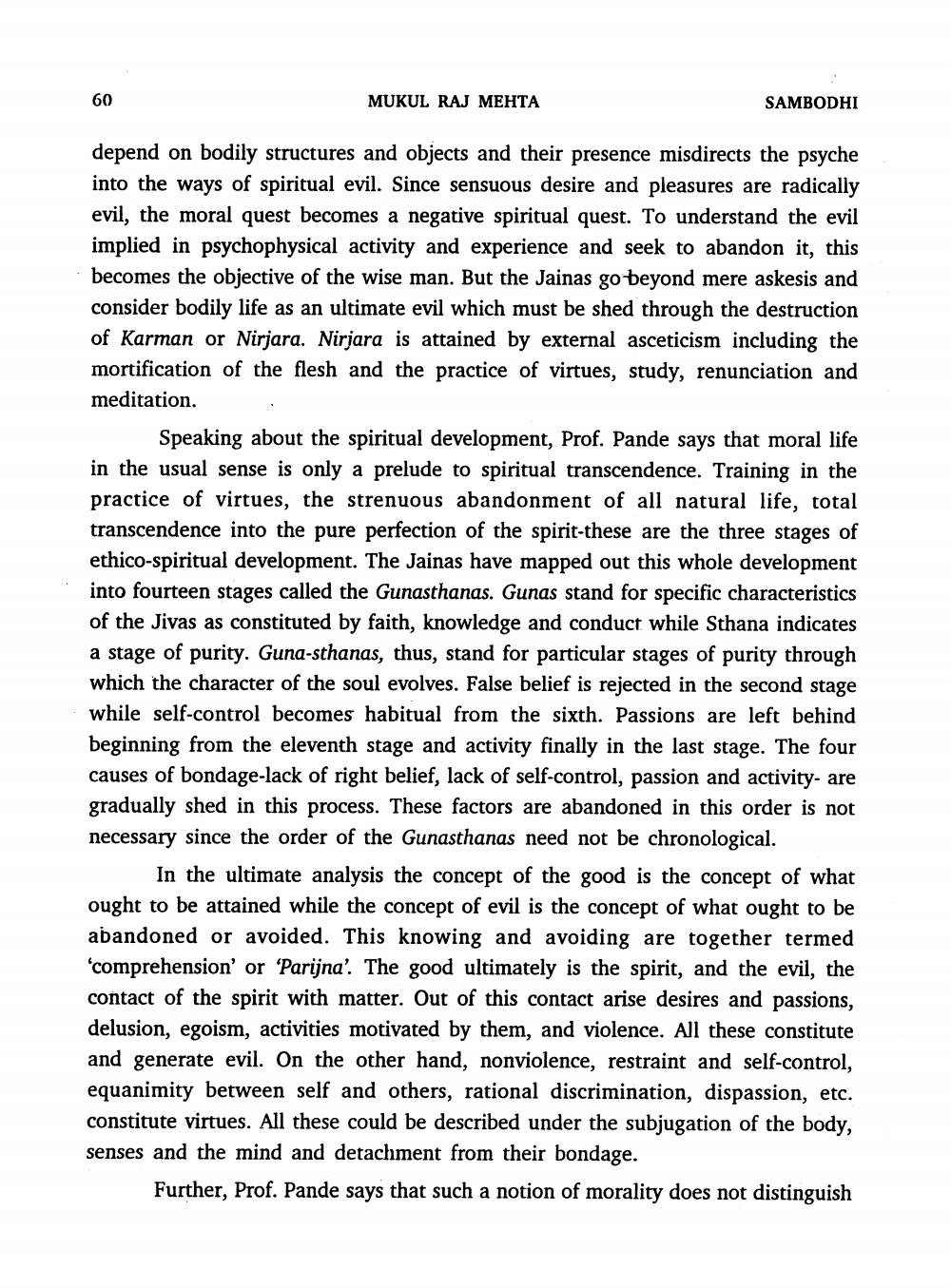________________
MUKUL RAJ MEHTA
SAMBODHI
depend on bodily structures and objects and their presence misdirects the psyche into the ways of spiritual evil. Since sensuous desire and pleasures are radically evil, the moral quest becomes a negative spiritual quest. To understand the evil implied in psychophysical activity and experience and seek to abandon it, this becomes the objective of the wise man. But the Jainas go beyond mere askesis and consider bodily life as an ultimate evil which must be shed through the destruction of Karman or Nirjara. Nirjara is attained by external asceticism including the mortification of the flesh and the practice of virtues, study, renunciation and meditation.
lon.
Speaking about the spiritual development, Prof. Pande says that moral life in the usual sense is only a prelude to spiritual transcendence. Training in the practice of virtues, the strenuous abandonment of all natural life, total transcendence into the pure perfection of the spirit-these are the three stages of ethico-spiritual development. The Jainas have mapped out this whole development into fourteen stages called the Gunasthanas. Gunas stand for specific characteristics of the Jivas as constituted by faith, knowledge and conduct while Sthana indicates a stage of purity. Guna-sthanas, thus, stand for particular stages of purity through which the character of the soul evolves. False belief is rejected in the second stage while self-control becomes habitual from the sixth. Passions are left behind beginning from the eleventh stage and activity finally in the last stage. The four causes of bondage-lack of right belief, lack of self-control, passion and activity- are gradually shed in this process. These factors are abandoned in this order is not necessary since the order of the Gunasthanas need not be chronological.
In the ultimate analysis the concept of the good is the concept of what ought to be attained while the concept of evil is the concept of what ought to be abandoned or avoided. This knowing and avoiding are together termed 'comprehension' or 'Parijna? The good ultimately is the spirit, and the evil, the contact of the spirit with matter. Out of this contact arise desires and passions, delusion, egoism, activities motivated by them, and violence. All these constitute and generate evil. On the other hand, nonviolence, restraint and self-control, equanimity between self and others, rational discrimination, dispassion, etc. constitute virtues. All these could be described under the subjugation of the body, senses and the mind and detachment from their bondage.
Further, Prof. Pande says that such a notion of morality does not distinguish




